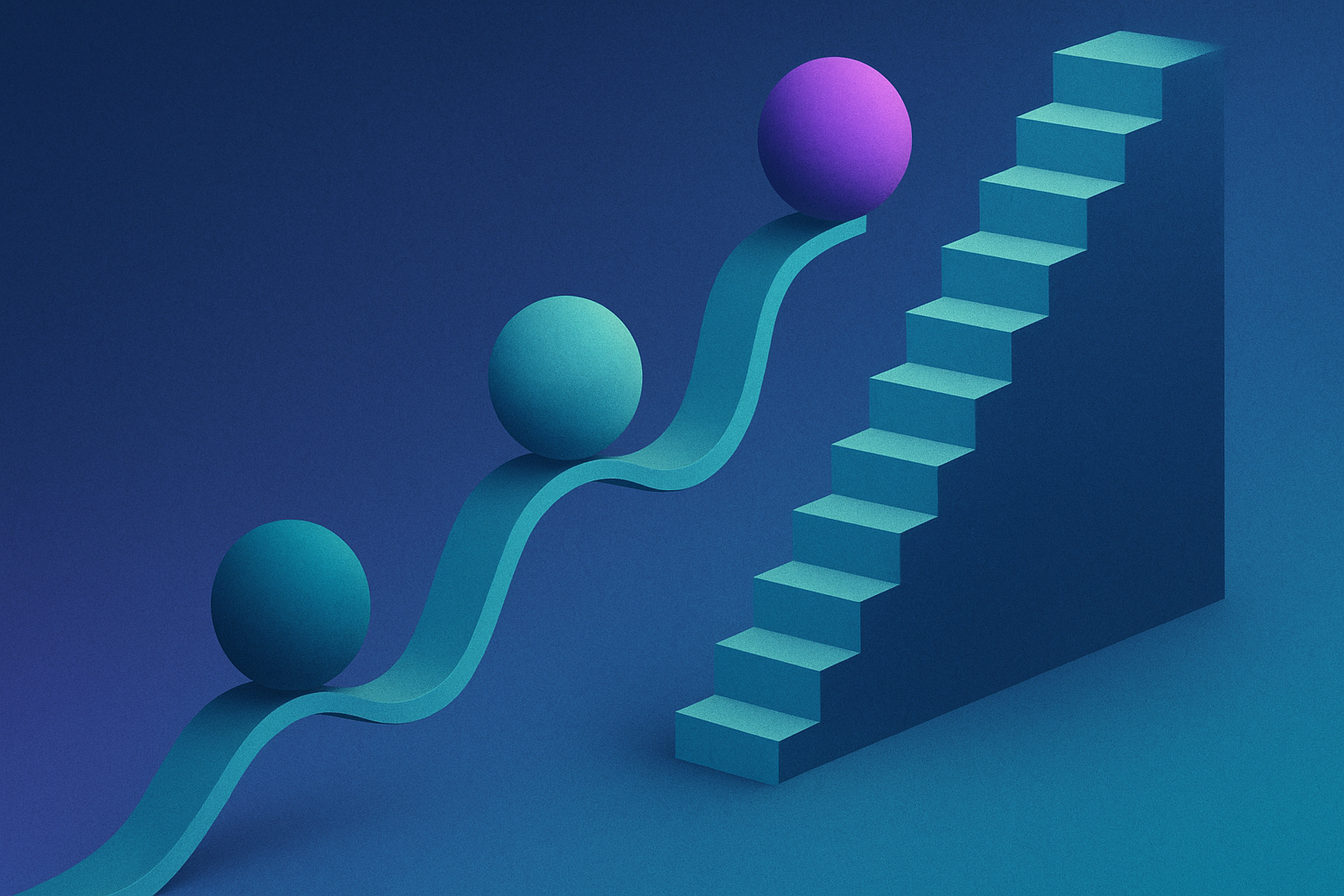Giving Up Makes More Sense Than It Used To
Learn how small business owners and nontechnical professionals can use AI to pivot, upskill, and reinvent their careers faster and cheaper than ever before.


Five or ten years ago, if you’d raised money, taken out loans, hired a team, and built a business, “giving up” wasn’t an option. You were committed—financially, emotionally, and operationally. You were locked into a direction, and any change of course required years and a lot of capital.
But the rules have changed.
Today, you and a friend could “vibe code”—casually collaborate with AI tools—and build in a few hours what once took a funded startup months to prototype. The barrier to entry has fallen so far that what used to take $10 million and a full team can now be replicated by two people with ChatGPT and a weekend.
That shift doesn’t just change what’s possible for small businesses—it changes what’s possible for everyone.
The Death of Sunk Costs
When the cost of starting something new was high, quitting looked like failure. But when the cost of trying again is near zero, sticking with something that’s not working looks like denial.
Five years ago, most entrepreneurs could only make small pivots. Now, we have to be ready for big ones. Entire industries are being reshaped by AI, and clinging to an old business model can mean getting left behind.
Why Don’t More People Pivot?
If it’s so easy to start over, why aren’t more people doing it?
The short answer is inertia. Entrepreneurs and business leaders don’t tend to be “give up” people—it’s not in their DNA. They’ve been trained to fight through challenges, not abandon the mission.
And there’s a cultural lock-in, too. If you’ve raised money or built a brand, it’s hard to admit that the right move might be to do something different. The same dynamic plays out inside established companies, where every product change triggers a cascade—retraining, marketing updates, customer support shifts. For companies that have something to protect, every decision feels heavier.
What It Means for People Inside Companies
What if you’re the employee inside one of those companies? This is where things get interesting.
While large companies have to move carefully, individuals—and smaller businesses—can move fast. You can use AI to prototype an idea, automate part of your work, or even build the first version of something entirely new. That’s the advantage SMBs have today: agility. When big companies pivot with AI, it can create waves of disruption. Smaller businesses and their employees, on the other hand, can adapt quietly and quickly—experimenting, learning, and evolving without the drag of bureaucracy.
If you’re a manager, it’s hard to imagine firing someone who uses AI to replace parts of their own job—that’s initiative. The people who get laid off in this new economy aren’t the ones who automate. They’re the ones who don’t adapt.
Reinventing Yourself Has Never Been Easier
For nontechnical professionals—especially those in SMBs—the same logic applies.
AI tools have made it dramatically easier to change careers and learn new skills. If you’re in customer support, for instance, you can use AI to practice new roles, draft business plans, or prototype apps. You can teach yourself marketing, product design, or analytics faster than ever before.
It used to be that careers were linear … you started in sales, and the only way up was to stay in sales. But now, if you’re curious and creative, you can step sideways into something new.
Maybe you’re a marketing manager who wants to do product work. Or a sales rep who wants to understand customer experience. AI makes those leaps not only possible, but practical.
The Courage to Quit
Ironically, the people who thrive in this new landscape aren’t the ones who refuse to quit—they’re the ones who know when to.
I realize this is easy to say when everything’s going well. When the economy is great, innovation is easy. When it’s tough, risk-taking feels scarier. But that’s when it matters most. The people and companies who learn to “give up” on what’s not working and start something new are the ones who’ll come out ahead.
So maybe “giving up” isn’t failure anymore.
Maybe it’s just the first step in building what comes next.
Get Started With Agents Now
Browse powerful AI agents or create your own—free, fast, and ready to use today.





